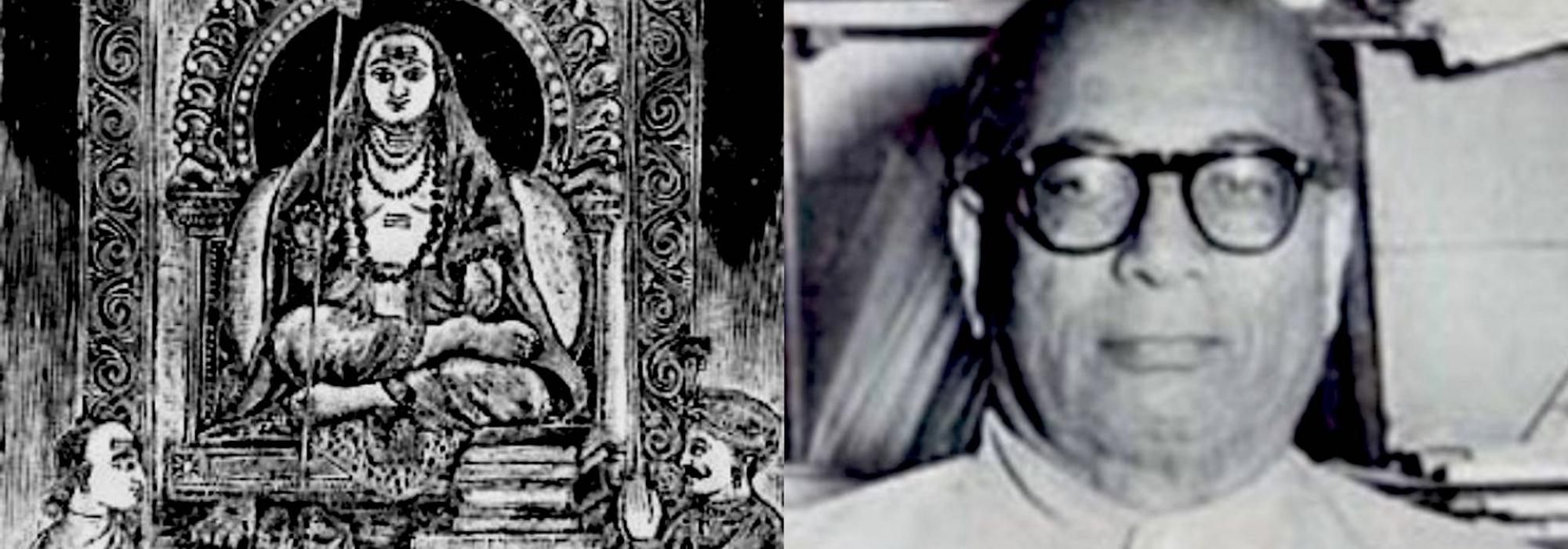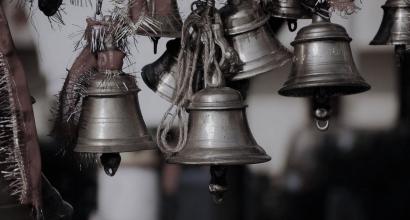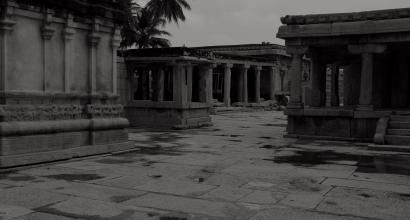A common refrain in the twenty-two chapters and forty-four essays in DVG’s Rajyashastra and Rajyanga is the natural ease, the practiced manner and legerdemain aptness with which DVG quotes from a wide range of ancient Indian texts including but not limited to the Arthashastra, the Vedas, Kavya (literature), philosophical treatises (by Adi Sankara, Vidyaranya et al) and Dharmashastras (Manusmriti, Kamandaka, et al). DVG was only adhering to the timeless Santana tradition[1] he treasured so much, “of making any affirmations for which authority could be cited by chapter and verse…and deprecated the contemporary mania for personalism.”
But these were not quotations to show off his erudition or to impress the reader or to provide scholarly backing to his own writing. They were forces of nature that could be summoned at will because DVG had tamed his muse to his own moods.
The adhvaryu of Political Literature in Kannada
And he went to the very roots. As a sample, we can consider his deliberations on the best method to coin new terminology in Kannada for producing new literature on the alien system of democracy in a way that was unambiguous, accurate, and easily understandable by the general reader.
Let’s take the example of a new word, “vṛṇīta.” This word is akin to “punīta” (Jaimini Bharata: || 18-45)…The word cunāyita is a deformed coinage. The correct synonymn for “elected” is “vṛta,” a Sanskrit word.
This etymological discussion proceeds apace for an entire paragraph, a delicious feast of learning, before DVG offers a conclusive reasoning for selecting vṛṇīta as the most appropriate word for “elected representative.” For each alternative that he suggests, he traces its Sanskrit dhātu (root), cites various examples of its usage and provides ironclad reasoning[2] for its suitability or otherwise. This is entirely consonant with the traditional Indian method of scholarship.
Without doubt, DVG is the adhvaryu of political literature in Kannada—both scholarly and popular.
On the larger canvas, DVG’s contemporaries like K.P. Jayaswal, U.C. Sarkar, Radhakumud Mookerji and Ananda Coomaraswamy have made valuable contributions, enriching the field of Indian statecraft and polity. However, they fall short in three key realms: (1) a sense of philosophical wholesomeness (2) applicability to the current conditions and (3) a perspective of what is known as samanvaya (integrative approach). Thus while Ananda Coomaraswamy’s Spiritual Authority and Temporal Power is doubtless a fine work, it nevertheless suffers from the minor defect of being prosaic, although one must thank him for the joyless work of translating sublime Vedic Sanskrit verses into an arid language like English, robbing both sublimity and the lived essence of the original. Likewise, K.P. Jayaswal’s meticulous, Hindu Polity is notable for an eagerness to somehow “prove” that ancient Indian republics (mahājanapadas) were similar if not superior to modern Western democracies.
Integral Calculus of the Universal Soul
But DVG is a Master chef who internalized precise flavors and cooked a fine meal even with disparate ingredients. He could use timeless Sanatana precepts and ideals and apply them intact—in both spirit and substance—to contemporary situations using an astonishing range of original, real-life allusions and literary metaphors. Talking about rights, liberty, and duties, DVG says that there should be freedom for the citizen to demand that the state should discharge Dharma; this was concomitant with the freedom for the state in turn, to demand that the citizen should discharge the Dharma that he owes[3] it:
Freedom is needed to establish the rule of law and justice, and justice protects freedom. This is entirely consonant with the principles of our Rajya Shastra.
Such insights were possible because DVG was finely attuned to the universal constants of Rta, Satya and Dharma, which we have already examined. Indeed, what DVG accomplished in all his political writing is akin to an integral calculus of the universal soul if we define it as a system that makes it possible to solve by a unified method many theoretical and applied problems involving a high degree of abstraction.
One of the clearest expositions of DVG’s political-philosophical ideal in the English language is his extraordinary monograph entitled Vedanta and Nationalism. This was originally a lecture delivered at the Chennai Jana Sangham[4] sometime in 1908-9 which was later expanded and published from Bangalore. DVG was just twenty-one or twenty-two then. The summary of his exposition is this: the core of Dharma expressed in the political realm is self-expansion. All systems originate in Mamata (affection, attachment) and should ideally culminate in a cultivated, inner feeling of Oneness of the universe. In his own[5] words:
The duty of every right-minded man…is to annihilate the false self by giving up selfishness bit by bit…by widening the heart to larger and larger spheres…and thus to expand the real Self and see it in everything in the universe…in India, the followers of the Eternal Religion are advised to love everything, not on account of the advantages that it affords, but on account of the Self that pervades everything…This is the only just reason that demands universal love from every man, and the only sound basis of all true ethics.
DVG’s mien is palpable even here: he liberally, conclusively invokes the Bhagavad Gita, Brihadaranyaka Upanishad and works of Kalidasa, and like them, his ideal of politics was to sculpt an informed and spiritualized governance so that for the populace, “enlightenment should also be enjoyable.”[6]
An Honest Inquirer and Critic of Mistakes
Yet, he was not blind to harsh realities of the past and present, and reserved his harshest criticism for the degradation of the character of the Indian people during his own time. Thus, when he wrote profoundly in the foregoing monograph that the “Nation is the means of safeguarding the interest of the family,” he also observed how
Neglecting this sublime principle, the degenerate son of India refuses to acknowledge that the family is but the training ground for the practice of self-denial…Instead of expanding his real Self, he is so utterly selfish that, if he supports a family, it is mainly, if not solely for the gratification of his own personal desires.
This among others is why we notice that other singular quality in all his political, journalistic and literary writing: an earnest longing to infuse conduct, character, vigour and verve among the Indian people. DVG led a frontal crusade against sloth, inertia and indolence in public life.
To be continued
Notes
[1] Aldous Huxley: The Perennial Philosophy
[2]For the full discussion, see: D V Gundappa: Rajyashastra, Rajyanga—DVG Kruti Shreni: Volume 5 (Govt of Karnataka, 2013) pp 7-8
[3] D V Gundappa: Rajyashastra, Rajyanga—DVG Kruti Shreni: Volume 5 (Govt of Karnataka, 2013) pp 100-101.
[4] The Chennai Jana Sangham was stewarded at various points by the doughty freedom fighter, advocate and shipping magnate, V.O. Chidambaram Pillai who had to suffer grievously at the hands of the British for daring to wreck their maritime trade exploitation of the Indian seas.
[5] Selected Writings of D.V. Gundappa Volume One (1908-1917): Vedanta and Nationalism (Gokhale Institute of Public Affairs, Bangalore, 2019) pp 34-37; See also: D V Gundappa: Rajyashastra, Rajyanga—DVG Kruti Shreni: Volume 5 (Govt of Karnataka, 2013) p 267
[6] Saul Bellow: How Higher Education Has Failed Democracy and Impoverished the Souls of Today's Students (Simon & Schuster, New York, 1988) p. 12










































